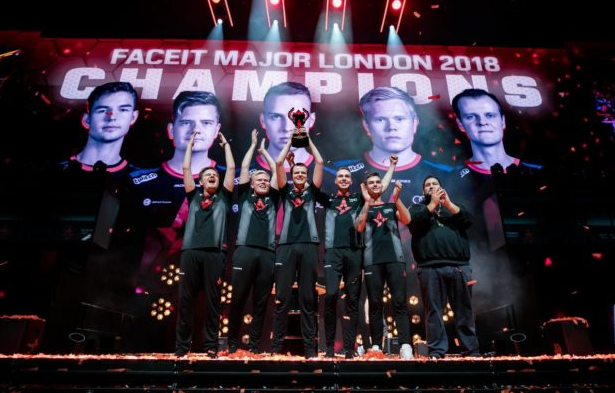The Faceit London Major And What It Means For The Future Of Esports
Once again the time has come (and passed) for the greatest Counter Strike Global Offensive teams to go head to head in the biggest tournament in all of CSGO: A Major. Faceit London was the second major of 2018, following Eleague Boston where Cloud9 won the first Major for a North American team in the history of the game. Similar to Eleague Boston, the recent Faceit major was rife with action packed rounds, upsets, and roaring fans.
Starting off with the main qualifier Team Liquid and NIP gave impressive 3-0 showings while legendary organization Virtus Pro and Space Soldiers unfortunately went out in an early 0-3. From there the teams proceeded into the main group stage of the major where Complexity gave an unbelievable run smashing expectations. Overall, even with the upsets, The Major seemed to be going as normal except for one thing: The feeling of it.
Without huge intense matches like the Cloud9-FaZe final of the last Major, many started to talk about flaws in the system of the Major being unearthed. Faceit themselves had some technical issues early on but most were fixed, followed by frames-per-second issues which was also fixed, so why would people hail this as so bad of a Major?
In general the swiss system of bracketing, which once was praised as an incredible improvement to the previous major format, was seen as being a main problem of the Major. Many people in Reddit or HLTV threads pointed to the failings of the swiss system as making the Major in general feel, well, boring. It’s obviously tough to run a great event when even the Liquid-Astralis game, which was supposed to be the best game of the major, fails to excite in a one sided blowout. Obviously one can’t blame Astralis, who destroyed every team they faced, for making a Major boring by being too good, but more than anything because of Astralis being too good, many viewers started to look deeper at what made this Major somewhat of a dissapointment. So, what can consistent Counter Strike fans expect from Valve, and organizers for the next Majors to come?
First of all one should expect a complete change to the bracketing system, and what it is I can’t say, but hopefully it fixes one sided blowouts or overall unfair bracketing. On top of that it’s unacceptable for a Major, of all events, to have issues with player’s PC’s during play, so a complete review of working condition pre Major really needs to get underway before players are deep in group stages playing with unbelievably sub-par frame rates or other issues. Finally it just needs to be addressed that, despite what lots of people say, this game isn’t dying, but rather the opposite.
Counter Strike has been a love of mine since MLG Columbus two years ago, and like other passionate fans, I’m not even close to ready to give up on this game. It has its failings here and there, but looking at the progress of the game and the esports events over the past two years, even in the shadow of Dota 2, the growth of Counter Strike has been nothing short of remarkable. Here’s to many, many more years of good Counter Strike (and hopefully a Major win for Team Liquid)!

